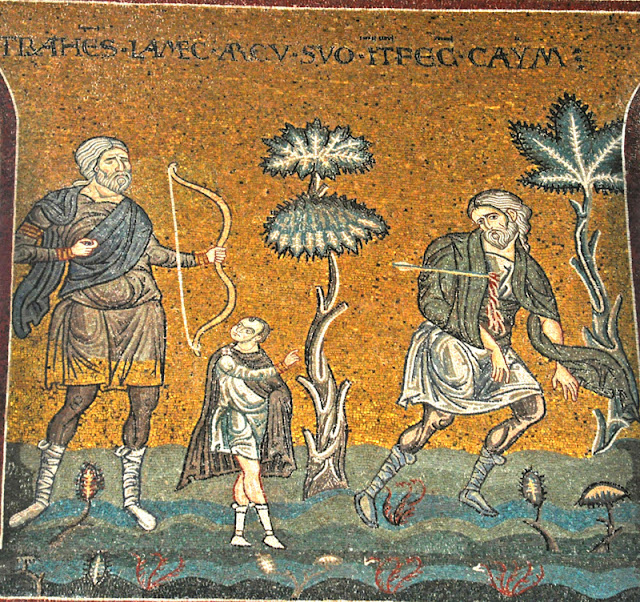Note: Devotion taken from last Sunday's sermon on Genesis 9:1-17.
And God blessed Noah and his sons, and said unto them, Be fruitful,
and multiply, and replenish the earth (Genesis 9:1).
Whoso sheddeth man’s blood, by man shall his blood be shed:
for in the image of God made he man (Genesis 9:6).
And God spake unto Noah, and to his sons with him, saying,
And I, behold, I establish my covenant with you, and with your seed after you
(Genesis 9:8-9).
I do set my bow in the cloud, and it shall be for a token of
a covenant between me and the earth (Genesis 9:13).
Genesis 9:1-17 describes God’s blessing and
commissioning of Noah and his sons after the flood, as well as God’s
establishment of his covenant with them, including the “token” of the bow in
the clouds.
What practical instructions do we take from this
account? Here are seven:
First, the preservation of Noah’s family and the
establishment of this covenant is a reminder that God was not finished with fallen
men. He was working out his plan of salvation (see Genesis 3:15).
Second, God gave even to fallen mankind, after the
flood, a renewed dominion mandate (Genesis 9:1, 7; cf. Genesis 1:27-28). It is
good for men to marry and to have children and to be wise and faithful and
compassionate stewards of the world and all its inhabitants.
Third, God values the life of human beings above all
other creatures. We are made in his image. Though that image has been tarnished
by the fall, it has not been obliterated (see Genesis 9:6). What is more, the
life of man is protected by God (Genesis 9:5). We should not, therefore,
unjustly take the life of our brother. This means God abhors murder, and
abortion, and infanticide, and euthanasia.
Fourth, capital punishment is a Biblically justified
punishment for those who unjustly shed man’s blood as long as it is lawfully
administered by the civil magistrate who does not bear the sword in vain
(Genesis 9:6; cf. Romans 13:1-4).
Fifth, God will never again destroy the world by flood
or by any other means before the final end of all things at the coming of
Christ (Genesis 9:11; cf. 2 Peter 3:10). So, we need not fear any doomsday
messages from climate alarmists or internet conspiracy theorists. God had made
a covenant commitment to us. And every time we see a rainbow in the clouds, we
can remember that covenant.
Sixth, just as God gave an outward token of his
covenant with Noah, so he continues to give outward signs of spiritual
realties. Baptism is one such sign and the Lord’s Supper another.
Seventh, we are reminded that after the flood, God
brought about a renewed creation. We might draw a parallel to salvation. In 2
Corinthians 5:17 Paul said that “if any man be in Christ, he is a new creature:
old things are passed away; behold all things are become new.”
In our unregenerate state, we believers were in
ruins, but God saw fit to salvage us, and he made each of us a new creature in
Christ, and he is continuing, by sanctification, to make us what we ought to
be.
Grace and peace, Pastor Jeff Riddle





























